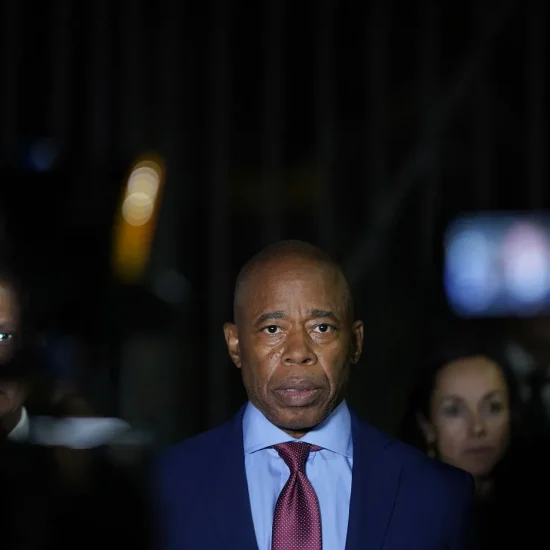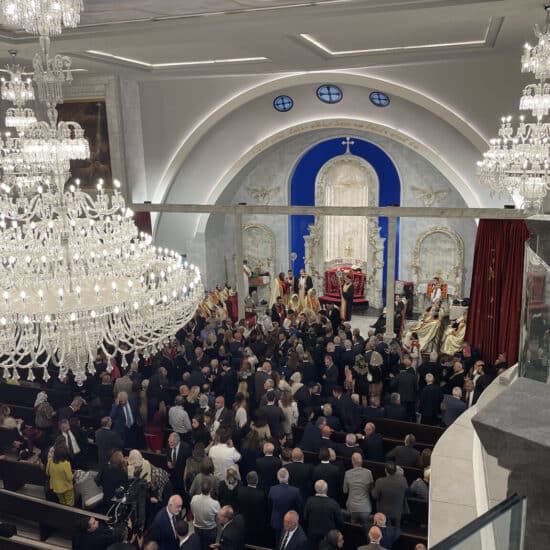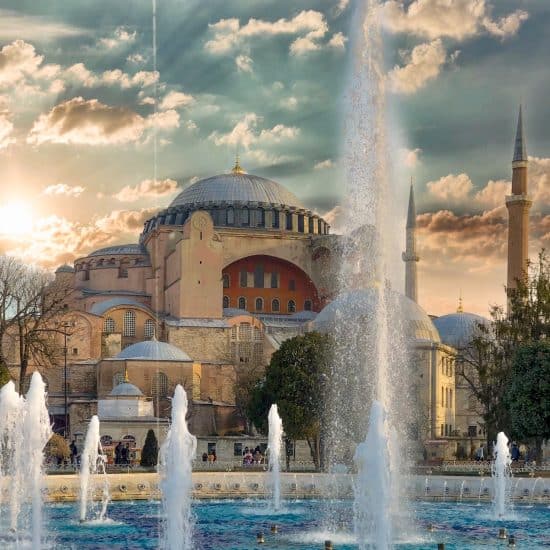ISTANBUL, Turkey (RNS) — A Turkish judge ruled on Wednesday (July 25) that Andrew Brunson, an American Presbyterian pastor and missionary facing terrorism charges, be moved from prison to house arrest. Turkish news channels covered his move, with crews setting up live shots from Brunson’s apartment in the coastal city of Izmir.
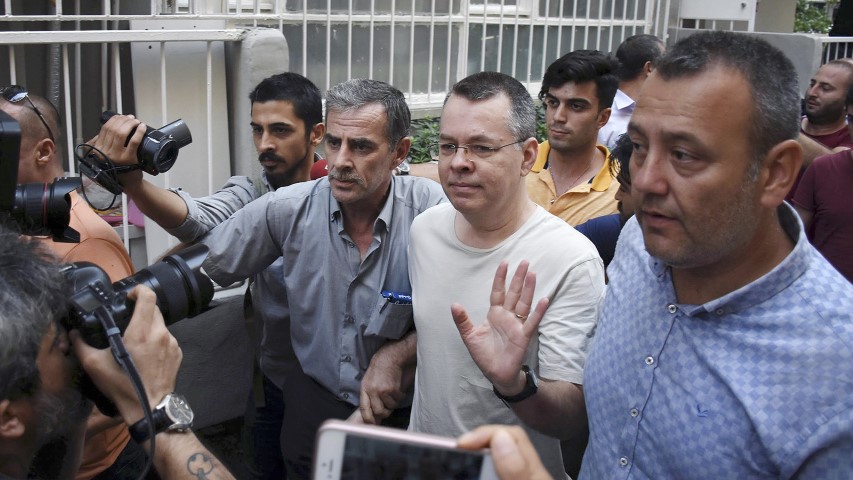 Pastor Andrew Craig Brunson, a 50-year-old evangelical pastor from Black Mountain, North Carolina, center, waves as he leaves a prison outside Izmir, Turkey, on July 25, 2018. Brunson, who had been jailed in Turkey for more than 1 ½ years on terror and espionage charges, was released Wednesday and will be put under house arrest as his trial continues. Pastor Brunson was let out of jail to serve home detention because of “health problems,” Turkey’s official Anadolu news agency said. (DHA via AP)The ruling marked a slight reprieve for Brunson, 50. In December 2016, an Izmir court announced that Brunson faced charges of belonging to a terrorist organization. At the time, his case got little notice both inside Turkey and the United States.
Pastor Andrew Craig Brunson, a 50-year-old evangelical pastor from Black Mountain, North Carolina, center, waves as he leaves a prison outside Izmir, Turkey, on July 25, 2018. Brunson, who had been jailed in Turkey for more than 1 ½ years on terror and espionage charges, was released Wednesday and will be put under house arrest as his trial continues. Pastor Brunson was let out of jail to serve home detention because of “health problems,” Turkey’s official Anadolu news agency said. (DHA via AP)The ruling marked a slight reprieve for Brunson, 50. In December 2016, an Izmir court announced that Brunson faced charges of belonging to a terrorist organization. At the time, his case got little notice both inside Turkey and the United States.
In March 2017, on his first visit to Turkey, then Secretary of State Rex Tillerson held an unscheduled, low-key meeting with Brunson’s wife, Norine. It was part of a flurry of diplomatic attempts to convince Turkish officials in Ankara, the capital, to deport the missionary, as they had done in similar cases. But Brunson’s case has come to mirror the unraveling relationship between Turkey and the United States. For many in Turkey, it has little to do with his faith or his work as a missionary, and everything to do with how Washington addresses the concerns of Ankara.
“It’s a very unique example, different from the kinds of cases we have seen over the years,” said Soner Tufan, a spokesperson with the Turkish Association of Protestant Churches and an acquaintance of Brunson’s. “In the past, Turkey has deported many foreigner Christians, but this kind of case — we have never faced it.”
In 2014, for instance, authorities refused to issue a resident permit for Patrick Jensen, a U.S. evangelical pastor who ran a church in the southeastern city of Gaziantep. Jensen was detained for about 30 hours, his church was shut down and he eventually left the country.
In October 2016, Brunson and his wife were summoned to a local immigration office for what they thought was a routine bureaucratic appointment as they worked to have their residence permit renewed. They had lived in Turkey since 1993 and were fluent in Turkish. Turkey is home to about 5,000 Protestant Christians, the vast majority of them local converts. Since 1993, Brunson, like hundreds of foreign missionaries, had worked to build a community and spread the faith.
Unlike in many other Muslim-majority countries, establishing churches and proselytizing are legal in Turkey. Brunson had been able to rent a space in Izmir for the Resurrection Church, a small evangelical congregation of 20 to 25 people. Aside from the name, there were no outward signs that the building was used as a church.
Then, when Syria’s civil war broke out in 2011, Brunson and other faith leaders in the region sought ways to help the millions of refugees who traveled across the border into Turkey. Brunson traveled to cities near the Syrian border and helped coordinate relief work for a network of missionaries that eventually set up small churches.
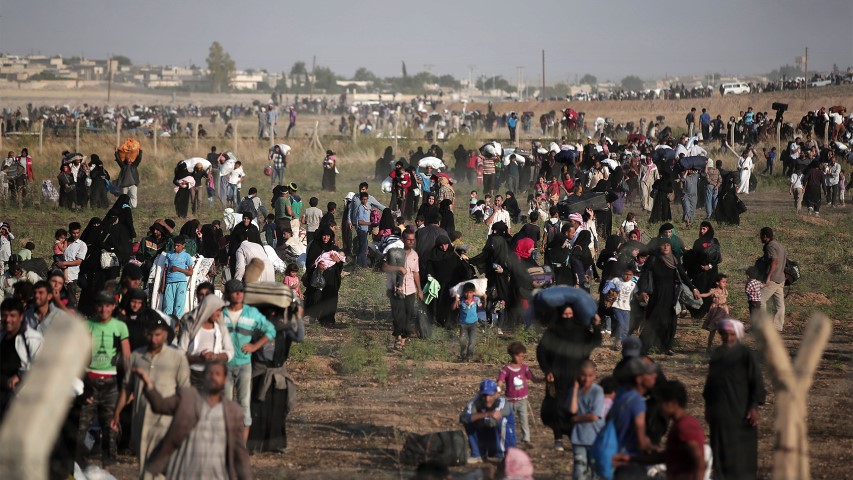 In this June 14, 2015 file photo taken from the Turkish side of the border between Turkey and Syria, in Akcakale, Sanliurfa province, southeastern Turkey, thousands of Syrian refugees walk in order to cross into Turkey. (AP Photo/Lefteris Pitarakis)Today, Brunson faces charges that stem from that work, including up to 15 years in prison for “committing crimes on behalf of a terror organization despite not being a member of the organization,” and 20 years for “disclosing state information that must remain confidential for political or military espionage purposes,” according to the 62-page indictment.
In this June 14, 2015 file photo taken from the Turkish side of the border between Turkey and Syria, in Akcakale, Sanliurfa province, southeastern Turkey, thousands of Syrian refugees walk in order to cross into Turkey. (AP Photo/Lefteris Pitarakis)Today, Brunson faces charges that stem from that work, including up to 15 years in prison for “committing crimes on behalf of a terror organization despite not being a member of the organization,” and 20 years for “disclosing state information that must remain confidential for political or military espionage purposes,” according to the 62-page indictment.
The indictment relies largely on the testimony of several secret witnesses who allege the pastor led a large network of CIA operatives working to destabilize Turkey. One secret witness alleged that most members of Brunson’s congregation were former U.S. soldiers or CIA operatives. Despite the fact that Brunson is a Presbyterian, one witness alleged that much of his congregation is Mormon, described in the indictment as a group that is “very influential in the U.S. Armed Forces, the CIA and the NSA.”
These conspiracy theories about Brunson — even if they come from unidentified witnesses who themselves attribute the testimony to other unnamed individuals — strike a chord in Turkey.
Many Turkish people believe Washington, D.C., is behind the two most vilified groups in the country: the Kurdistan Workers’ Party or PKK, which has fought a three-decades-long insurgency for Kurdish autonomy; and followers of Fethullah Gulen, an Islamic cleric who is blamed for a 2016 coup attempt that left 250 people dead.
The U.S. has refused to extradite Gulen, who currently lives in Pennsylvania, despite pressure from Turkish authorities to hand him over. The Trump administration contends that judges need time to assess the evidence against him.
The unidentified witnesses in Brunson’s case allege he believed Kurds were a biblical “lost tribe” and would thus welcome the Christian faith. Brunson also allegedly translated the Bible into Kurdish and distributed it to Kurdish refugees, even crossing the border into Syria to meet with top Kurdish officials.
“He engages in missionary activities under the cover of providing humanitarian aid to asylum seekers,” said prosecutors. Turkish news outlets have published allegations that do not appear in the indictment but further the narrative. One pro-government media outlet claimed that Brunson sheltered PKK members in his church and helped them convert to Christianity so they could get political asylum in Western countries.
The indictment alleged that Brunson had ties with Gulen’s network, which was ostensibly an Islamic movement, but was known in Turkey for its outreach to other faiths. Stigma against Gulen’s movement is so widespread today that many nongovernment interfaith groups have stopped using the words “interfaith dialogue” out of fear they could be linked to the controversial cleric.
Both Turkey and the United States have designated the PKK a terror group, but Turkish officials allege that the U.S. is not enforcing that view. In its military campaign against the Islamic State in Syria, the U.S. has come to rely on Kurdish militias in Syria that Turkish officials say are nothing more than extensions of the PKK. Turkey sent troops inside Syria stating in 2016 to push out those Kurdish militias; today, only a few kilometers separate its forces from U.S. troops embedded in areas still controlled by Kurds.
In September 2017, President Recep Tayyip Erdogan renewed public attention to Brunson’s case by directly linking his fate with Gulen’s. “‘Give us the pastor (Brunson) back,’ they say. You have one pastor as well. Give him (Gulen) to us,” Erdogan said. “The (pastor) we have is on trial. Yours is not — he is living in Pennsylvania. You can give him easily. You can give him right away.”
“For the Turkish government, Brunson is not a significant person for his beliefs or his missionary activities,” said Tufan. “People in Turkey are asking why a big power like America is interested in one person in Turkey, and how that person can be so important that Trump, Pence, Congress and almost all human rights organizations are interested in him. And now they are concluding this person must be very important. He has to be the head of the CIA or something.”
While many in Turkey bristle at the Trump administration’s pointed rhetoric, they also regret that Brunson is receiving poor treatment.
“If there is law in Turkey, please judge him fairly, and if there is no proof then please release him,” said Tufan. “It’s not good for a country to claim there is a democracy and freedom of religion … and use someone for your sake as a hostage.”
“As a Christian and a Turkish citizen, I am embarrassed by this situation.”
Umar Farooq is a journalist based in Istanbul whose work has appeared in the Los Angeles Times, Foreign Affairs, the Christian Science Monitor, Foreign Policy and The Atlantic.

